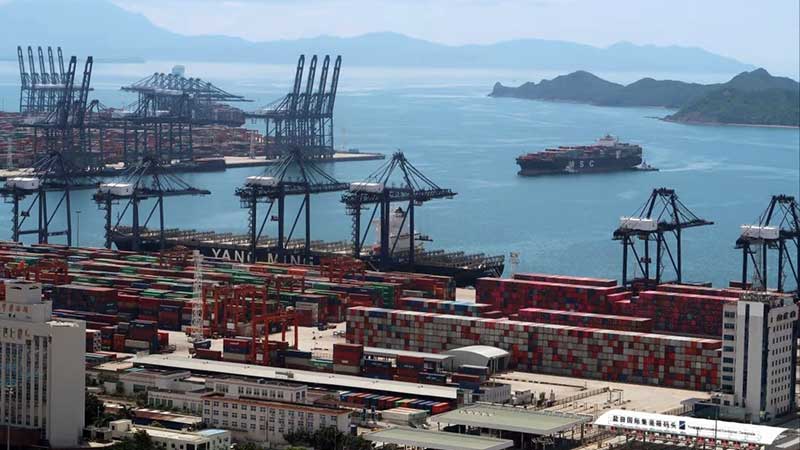
The European Union is set to unveil a powerful new trade weapon that could result in China and other countries accused of economic bullying being shut out of lucrative parts of the EU market.
The anti-coercion instrument will target states that try to “interfere in the legitimate sovereign choices” of the EU or one of its 27 member states “by applying or threatening to apply measures affecting trade or investment”, according to a draft proposal seen by the South China Morning Post.
It lays out a large range of punitive actions the EU can take when it is satisfied that coercion is taking place, including tariffs, suspension of market access through the use of quotas or trading licences, and restricted access to public procurement programmes and investment markets.
The move comes as the issue of coercion has been thrust to the top of the EU-China agenda with the spat between Lithuania and China, in which Beijing has been accused of blocking Lithuanian exports after the Baltic nation expanded its ties with Taiwan.
According to the draft proposal, those found to be involved in coercion could be blocked from sourcing goods governed by EU export control guidelines, have their intellectual property rights truncated, be excluded from the bloc’s giant financial services or chemicals sectors, or face sanitary or phytosanitary barriers to tapping the EU’s food markets.
“The union should only impose countermeasures when other means such as negotiations, mediation or adjudication do not lead to the prompt and effective cessation of the economic coercion and reparation of the injury it has caused,” the draft text reads.
Responsibility for deploying the instrument will lie with the commission, meaning the chances of individual trade actions being blocked by disgruntled EU members at the European Council level are limited, provided the tool becomes law.
The proposal will be released on Wednesday and then embark on a lengthy legislative process in which it must be approved by the European Council, made up of leaders of the 27 member states, and the European Parliament before being signed into law.
The instrument will add to a fraught pile of issues that are making this a delicate time for EU-China ties.
On Monday, the EU renewed sanctions for another year on three Chinese officials and one entity for human rights abuses in Xinjiang.
An EU official, speaking under the condition of anonymity, said that if the allegations of an export blockage were legitimate, they would represent a “clear breach” of WTO rules.
However, they said there is little the EU could do in the short term, with the main tools at its disposal being a WTO case which could take years, or the anti-coercion instrument, which may not be in use until late next year.
The export freeze continued on Monday, according to Vidmantas Janulevičius, president of the Lithuanian Confederation of Industrialists, who said that none of his members had been able to confirm an export to China since last week.
On Monday, five trainloads of organic mineral produce were backed up at Vaidotai railway station, Lithuania’s main cargo transit hub, unable to set off for China because of the same technical issue, Janulevičius said.
While Lithuania’s situation has put the issue on the news agenda, EU members are torn on whether such an instrument is required.
An EU diplomat involved in discussions said a group of diehard free traders led by Sweden have been “outspoken” critics of the tool, while France has been its most vocal supporter.
In official feedback submissions posted to the EU website, the Swedish and Estonian governments urged the EU to work within WTO rules, as did a submission from Japan.
“As far as possible, we should avoid weaponising EU trade policy and contributing to an arms race, particularly at a time when trade policy relations with the US have improved under the new US administration,” read a submission from Sweden’s National Board of Trade.
A Japanese government submission urged the EU “to carefully examine possible negative impacts on the international trading system of the implementation of the initiative”.
Fuente:
Finbarr Bermingham-https://www.scmp.com/news/china/article/3158696/eu-will-propose-new-trade-weapon-counter-chinas-economic-coercion
